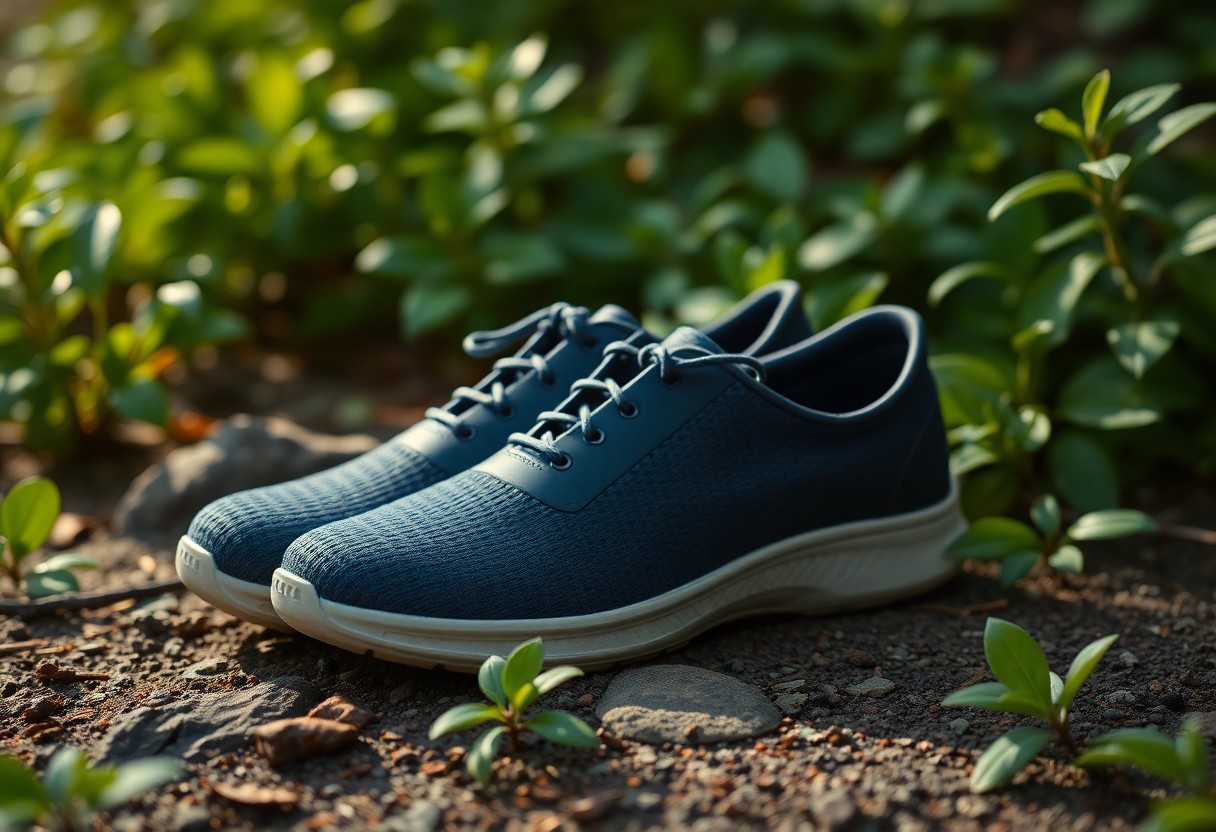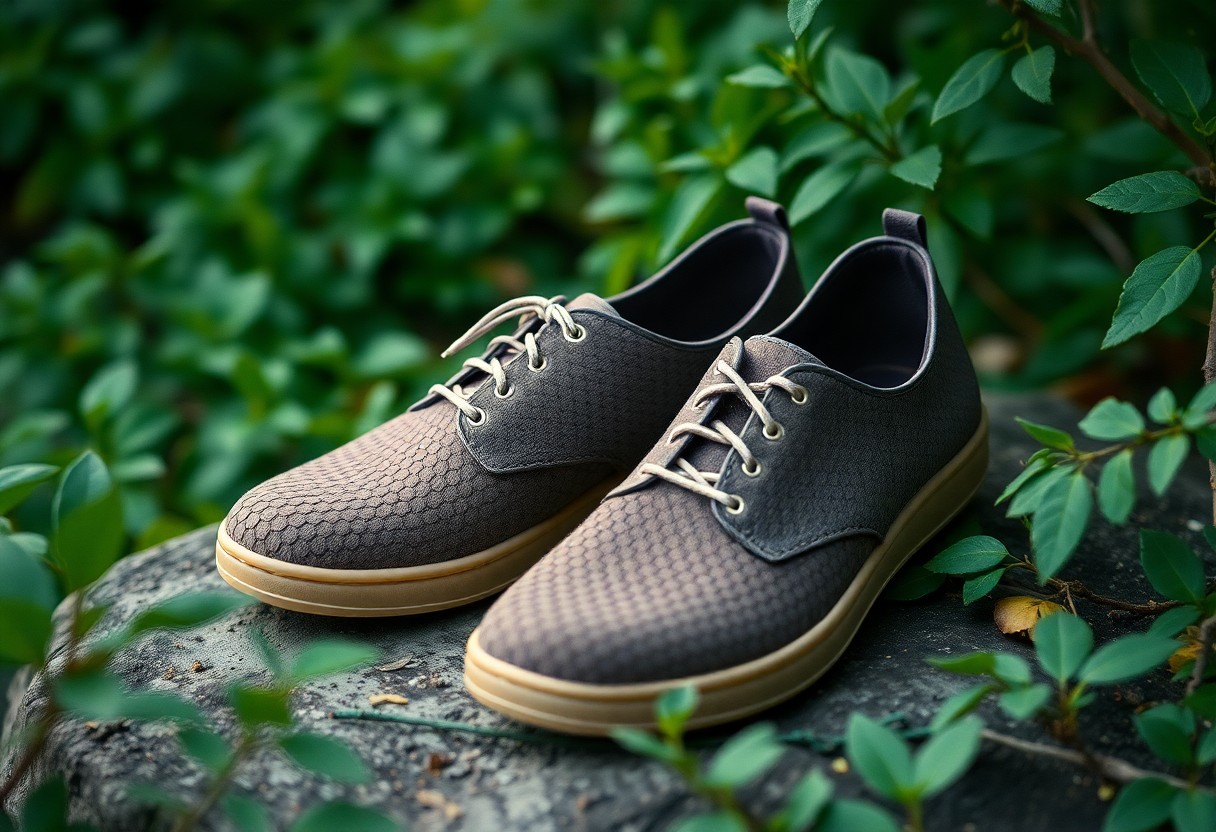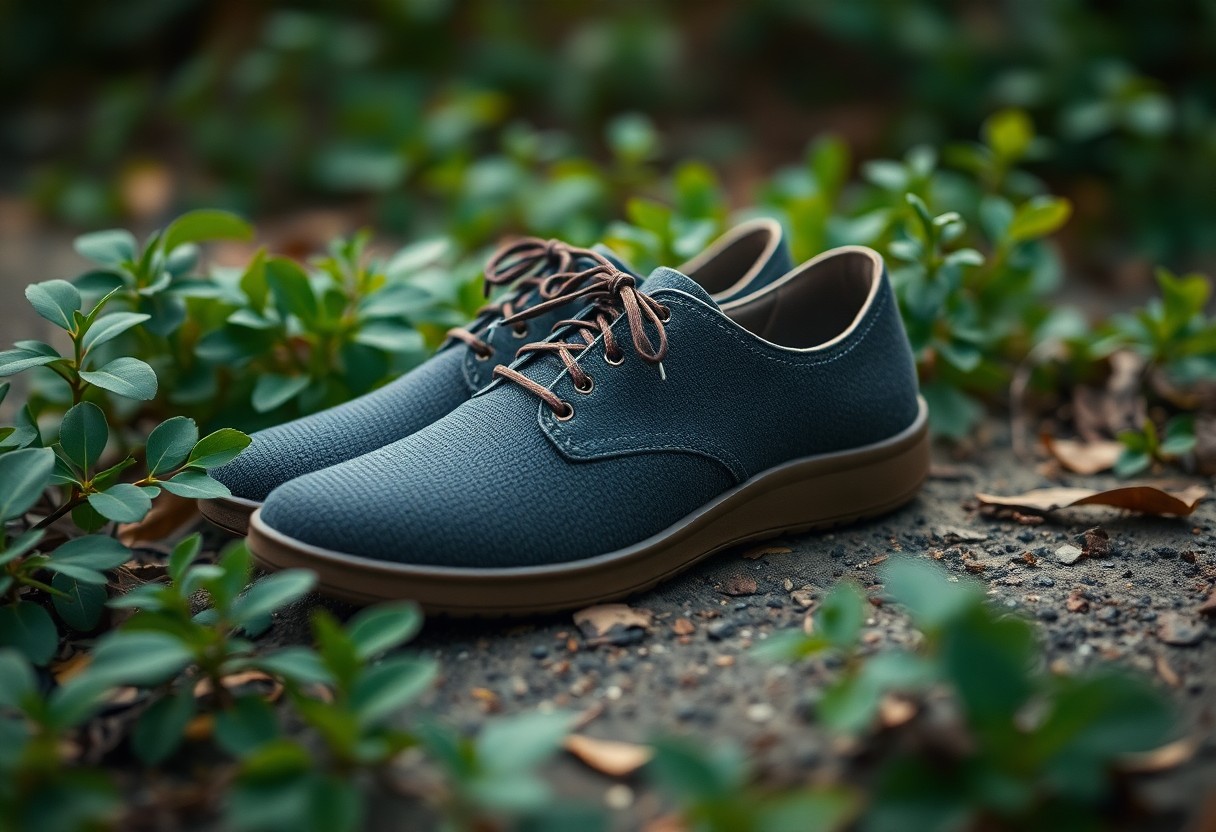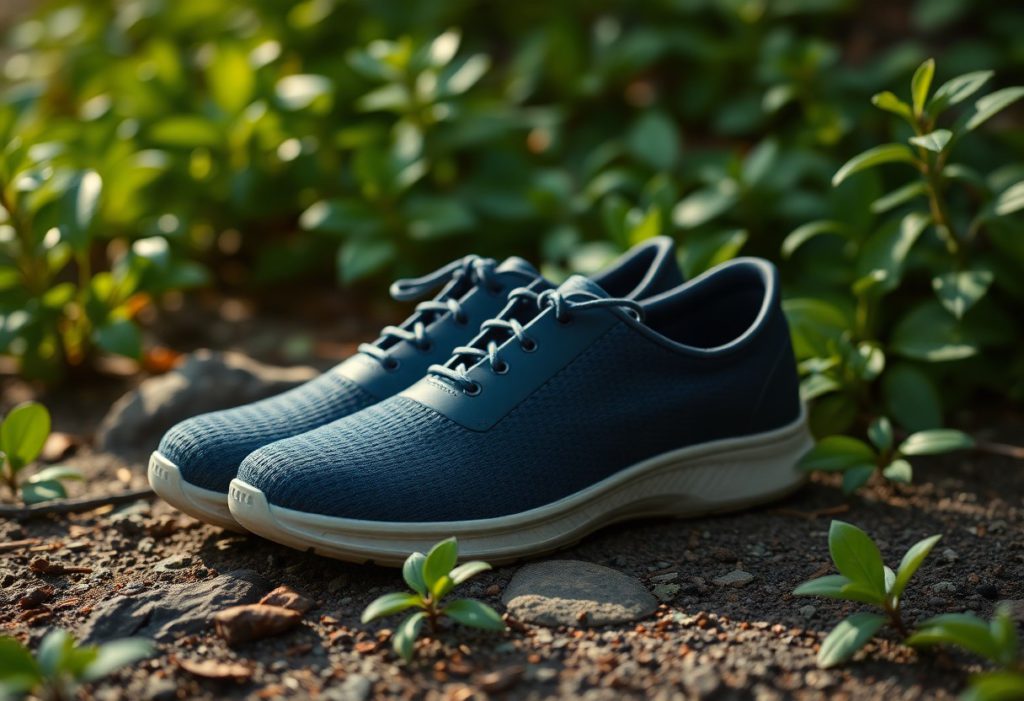As the desire for footwear that embodies personal values such as minimalism, functionality, and environmental responsibility continues to rise, Xero Shoes has established itself as a significant player in the market. This brand offers shoes that merge the concept of barefoot flexibility with eco-friendly materials, utilizing recycled soles and plant-based dyes. However, a pertinent question arises: just how sustainable are these shoes? Xero Shoes promotes carbon-neutral shipping and long-lasting designs aimed at reducing waste; still, certain synthetic components pose challenges for complete sustainability. By choosing Xero Shoes, you are making strides toward sustainability while considering your environmental footprint, even if certain compromises must be made. If you're in search of footwear that champions eco-conscious practices, here are the essential points you should evaluate.
Unlock the Advantages of Eco-Conscious Footwear Choices
In contrast to traditional footwear that frequently relies on synthetic materials and detrimental manufacturing processes, eco-friendly footwear is intentionally crafted with sustainability as a core principle throughout its production journey. These cutting-edge shoes utilize recycled, biodegradable, or plant-based materials, thereby dramatically decreasing waste and carbon emissions. For enthusiasts of barefoot movement, brands like Xero Shoes integrate this philosophy with minimalist designs, empowering you to tread lightly on our planet—just like walking with a reduced footprint, both in a physical and environmental sense.
Defining Eco-Friendly Footwear: A Sustainable Approach
At its essence, eco-friendly footwear encompasses shoes that are made from sustainable materials such as organic cotton and natural rubber, while adhering to ethical manufacturing guidelines. These shoes consciously avoid toxic dyes, excessive packaging, and non-recyclable components, ensuring that your purchasing decisions contribute to healthier ecosystems and equitable labor practices. It’s essential to recognize that it’s not just about the shoes you wear, but also about the ethical and sustainable processes involved in their creation.
Why Minimalist Shoe Designs Are Gaining Traction
Alternative to conventional cushioned footwear, minimalist designs like barefoot shoes have surged in popularity due to their authentic feel and environmental advantages. By minimizing surplus materials, these shoes significantly diminish waste and energy consumption, embodying the philosophy of “less is more.” This trend is mirrored in brands like Xero Shoes, which utilize thin, robust soles and lightweight fabrics, thereby curtailing resource use. This evolution reflects a growing awareness that simpler designs can effectively reduce your carbon footprint without compromising on functionality.
For instance, Xero Shoes leverages lightweight materials and innovative techniques to create footwear that not only feels great but also respects the environment. This thoughtful approach resonates with individuals who prioritize sustainability in their lifestyle choices.
Understanding the Importance of Sustainable Practices in Footwear Production
The footwear industry significantly contributes to pollution and landfill waste, with billions of pairs discarded each year. Adopting sustainable practices, such as using recycled plastics and water-based adhesives, can help mitigate these pressing issues. By opting for eco-friendly alternatives, you are endorsing innovative practices that safeguard ecosystems and minimize environmental harm. Nevertheless, it is crucial to recognize the high stakes involved: the fast fashion industry's dependence on synthetic materials results in the release of microplastics and the over-exploitation of resources. In contrast, sustainable brands focus on longevity and circularity, ensuring your footwear does not worsen the ongoing environmental crisis.
Diving into the Sustainable Materials Used in Xero Shoes
If you're on the hunt for eco-friendly barefoot shoes, Xero Shoes stands out for its commitment to sustainability through the utilization of recycled PET and hemp, effectively reducing waste and environmental footprint. Their dedication to green alternatives ensures that your footwear aligns with your eco-friendly values—like taking steps with a lighter footprint, both literally and environmentally.
Harnessing Eco-Friendly Recycled PET Laces
Sustainable practices can initiate from even the smallest components, like Xero Shoes’ laces made from 100% recycled PET, which transforms plastic waste into durable, functional parts. By selecting these laces, you actively contribute to diverting plastic from landfills while enjoying performance that lasts, thereby playing a role in fostering a cleaner planet.
Exploring the Advantages of Hemp Uppers
The environmental benefits of Xero Shoes’ hemp uppers are noteworthy. Hemp is a low-water, pesticide-free crop known for its capacity to enhance soil health. Its natural breathability and strength make it an ideal choice for barefoot shoes, providing comfort without compromising the Earth. Choosing hemp supports a cleaner future due to its rapid growth and carbon-sequestering qualities. In contrast to synthetic fabrics, hemp naturally biodegrades, reducing long-term waste accumulation. Additionally, its antimicrobial properties help maintain freshness in your shoes over extended periods.
When comparing hemp to conventional materials:
| Hemp | Uses 50% less water than cotton |
| Synthetics | Originates from fossil fuels, non-biodegradable |
Evaluating the Environmental Impact of Minimalist Footwear Design
Xero Shoes’ minimalist designs not only reduce material waste but also lower your carbon footprint by demanding fewer resources during production. The streamlined design process results in less energy consumption during manufacturing, and the absence of excess padding or synthetic layers significantly decreases contributions to landfills. Opting for minimalist footwear supports a design philosophy that emphasizes efficiency and sustainability, akin to walking with a lighter footprint in both a literal and environmental context.
Utilizing Lightweight Materials for Enhanced Sustainability
The environmental advantages of Xero Shoes are evident through their lightweight, low-impact materials, including recycled rubber soles and vegan-friendly fabrics. These choices help alleviate the strain on natural resources while still delivering exceptional performance. You’ll find that using these materials also helps minimize transportation emissions, as lighter shoes require less fossil fuel for shipping, contributing to a healthier planet.
Ensuring Long-Lasting Durability with Xero Shoes
In addition to their eco-friendly materials, Xero Shoes are designed for durability, reducing the necessity for frequent replacements. The reinforced stitching and high-quality rubber outsoles are crafted to withstand wear and tear, ensuring that your shoes remain functional for years. This durability directly correlates with reduced landfill waste, making them a smart investment in sustainable living.
Indeed, Xero Shoes’ durability is underscored by a 5,000-mile sole warranty, demonstrating their commitment to minimizing environmental impact. Fewer replacements lead to lower resource consumption, and their repairable design allows you to extend the lifespan of your shoes even further. For eco-conscious consumers, this blend of resilience and sustainability represents a truly transformative approach.
Deciphering Certifications and Ethical Practices in Footwear
Once again, Xero Shoes highlights its dedication to sustainability by adhering to rigorous certifications and ethical practices. Their transparency in sourcing and manufacturing ensures that your barefoot shoes reflect eco-friendly values. From carbon-neutral shipping to recycled materials, they prioritize minimizing environmental harm while offering high-performance footwear. Like walking with a lighter footprint—both literally and environmentally—their initiatives exemplify a genuine commitment to planet-friendly practices.
The Importance of Fair Trade Certification
By choosing Fair Trade-certified materials, Xero Shoes actively champions ethical labor conditions and equitable wages for workers. Your purchases contribute to empowering communities and fostering social equity. While not all their products carry this certification, their ongoing efforts to enhance supply chain ethics reflect significant strides toward a more responsible future.
Understanding PETA-Approved Vegan Certification
Impact matters, and Xero Shoes’ PETA-Approved Vegan certification guarantees that your footwear is 100% free from animal-derived materials. This certification aligns with a cruelty-free lifestyle while also mitigating the environmental harm associated with leather production. Their vegan options illustrate that you can uphold ethical standards without sacrificing performance.
Moreover, PETA’s approval encompasses not just material sourcing; it involves a thorough audit of supply chains to ensure there is no exploitation of animals. Xero Shoes’ commitment in this area means you can trust their claims, avoiding common greenwashing pitfalls that are prevalent in the industry. For eco-conscious consumers, this certification offers an additional layer of assurance regarding your sustainable choices.

A Case Study: Real Experiences with Sustainability
Numerous barefoot shoe enthusiasts have expressed how Xero Shoes resonate with their eco-conscious values, valuing the brand’s minimalist design and sustainable materials. Whether focusing on waste reduction or opting for vegan-friendly choices, users underscore how these decisions reflect their commitment to a greener lifestyle—like walking with a lighter footprint, both literally and environmentally.
Assessing Lifecycle Impact
Xero Shoes is committed to minimizing environmental harm at every phase of their product lifecycle, from production to disposal. Their durable construction enhances wearability, while recyclable components help mitigate landfill contributions. You will find that their lifecycle approach balances performance with planet-friendly practices.
Feedback from Sustainability Advocates
Insights from eco-conscious wearers indicate robust support for Xero Shoes’ transparency and ethical sourcing. Advocates highlight the brand’s initiatives, such as employing recycled materials, which deeply resonate with their personal sustainability objectives.
Upon thorough examination of these testimonials, it becomes clear that durability and low-carbon manufacturing are often emphasized as standout features. However, some advocates propose that there is potential for improvement in end-of-life recycling programs, urging the brand to innovate further in circular practices.

The Influence of Consumer Choices on Sustainability
Building sustainable habits begins with you. Your actions as a consumer shape market demand, influence brand practices, and drive the shift toward eco-friendly initiatives. By choosing products like Xero Shoes, you support companies that prioritize minimal waste and ethical sourcing, illustrating that small actions can lead to significant change.
Environmental Effects of Your Purchasing Decisions
Before making a purchase, reflect on your environmental impact. Each transaction creates ripple effects—from resource extraction to landfill waste. Opting for barefoot shoes made from recycled materials or biodegradable components can substantially decrease your footprint, reinforcing the concept of walking with a lighter footprint—both literally and environmentally.
The Significance of Consumer Education and Awareness
Grasping the lifecycle of your footwear is vital. The more knowledgeable you are, the better your choices become. Brands like Xero Shoes openly disclose their processes, assisting you in avoiding greenwashing and aligning with authentic sustainability.
Consumer awareness extends beyond superficial labels. Investigating materials, labor conditions, and carbon footprints empowers you to make informed decisions. Ignorance fuels unsustainable practices, while understanding promotes accountability and progress in sustainable consumerism.
The Growing Demand for Sustainable Products
The increasing interest in eco-friendly footwear reflects a broader cultural shift. As more individuals place importance on sustainability, brands are responding with innovations such as plant-based soles and zero-waste packaging, demonstrating that your consumer choices can instigate meaningful change within the industry.
Your behaviors shape market dynamics. Your preference for sustainable options pressures competitors to adapt or risk obsolescence. Fast fashion and synthetic materials are waning as conscious consumers advocate for alternatives, progressively contributing to a healthier planet.
Financial Considerations when Choosing Sustainable Footwear
Selecting eco-friendly barefoot shoes, like those offered by Xero Shoes, signifies a growing trend towards sustainable consumerism. While these shoes may require a higher initial investment compared to conventional alternatives, their durability and minimal environmental impact often justify the expense. By supporting brands that prioritize ethical materials and production, you contribute to a circular economy that reduces waste and promotes fair labor practices. Like walking with a lighter footprint—both literally and environmentally—your purchase aligns with values that benefit both the planet and future generations.
Cost Factors Affecting Consumer Choices
Among the factors influencing your decision, the initial cost of sustainable barefoot shoes might surpass that of mass-produced alternatives. However, their extended lifespan and repairability frequently offset this cost over time. Brands like Xero Shoes emphasize quality materials, leading to fewer replacements and reduced waste. Although the initial price may give you pause, the value-per-wear makes them a sensible financial choice for eco-conscious consumers.
Long-Term Benefits of Investing in Eco-Friendly Products
In addition to minimizing your carbon footprint, eco-friendly barefoot shoes offer health and financial benefits. Their natural designs encourage better posture and foot strength, potentially decreasing medical expenses linked to inadequate footwear. By choosing sustainable options, you also promote innovation in green materials, driving transformative change across the industry.
For example, Xero Shoes utilizes recycled and vegan materials that reduce resource depletion and pollution. Over time, your investment in these products helps normalize sustainable practices, encouraging more brands to adopt eco-conscious methods. This ripple effect can yield broader environmental benefits, including decreased landfill waste and lower carbon emissions.
Market Trends and Future Outlooks
Globally, the appetite for sustainable footwear is on the upswing, with barefoot shoes attracting the interest of health- and eco-conscious consumers. Brands like Xero Shoes are at the forefront, harnessing biodegradable and recycled materials to meet this growing demand. As awareness expands, we can anticipate more competitive pricing, making eco-friendly options accessible to a broader audience.
Trends suggest a move toward transparency, with consumers demanding detailed insights regarding ethical sourcing and production practices. This call for accountability is reshaping the industry, although challenges such as greenwashing remain. By staying informed, you can make choices that align with sustainability objectives, ensuring your purchases drive impactful change.
Overcoming Challenges in Sustainable Shoe Manufacturing
Despite the rising demand for eco-friendly footwear, producing sustainable barefoot shoes like Xero Shoes comes with numerous challenges. The limited availability of certified materials, high production costs, and the need for durable yet biodegradable designs complicate the process. You might wonder if these obstacles compromise sustainability—fortunately, brands committed to innovation are actively seeking solutions that ensure your shoes align with your values.
Challenges in Sourcing Sustainable Materials
A significant hurdle lies in sourcing ethically produced, eco-friendly materials. Each component must comply with stringent environmental standards, from recycled rubber soles to plant-based dyes. You will appreciate that Xero Shoes prioritizes suppliers with transparent practices; however, scaling these responsibly remains a considerable challenge for the industry.
Finding the Balance Between Cost and Quality
Behind every sustainable shoe lies a complex equation: affordability versus durability. Eco-materials typically come with a higher price tag, yet compromising on quality can undermine longevity—something you certainly won’t accept in footwear meant for prolonged use. Brands must navigate this balance without shifting the entire burden onto the conscientious consumer.
Challenges arise when budget-friendly alternatives compromise sustainability. For example, cheaper synthetic options might reduce costs but fail to biodegrade. Xero Shoes tackles this challenge by optimizing production efficiency, demonstrating that ethical choices do not always equate to exorbitant prices.
The Footwear Industry’s Reluctance to Change
A major barrier is the footwear industry’s hesitance to abandon fast-fashion models. Traditional manufacturers often prioritize profit over ecological responsibility, complicating the growth of sustainable brands. Your support for eco-friendly companies like Xero Shoes is vital for instigating systemic change.
Progress may seem slow due to entrenched practices and lobbying against eco-regulations, but consumer demand—driven by your choices—is propelling brands toward greater transparency. Change is happening, but it necessitates ongoing advocacy from consumers who value sustainability over convenience.
Innovations in Sustainable Footwear Technology
Stay ahead in the sustainability game with Xero Shoes’ groundbreaking advancements in eco-friendly footwear. Their innovations prioritize minimizing environmental impact while guaranteeing superior performance, integrating comfort with eco-conscious design. From recycled materials to low-waste production techniques, these shoes empower you to walk with a lighter footprint—both literally and environmentally.
Enhancements in Sustainable Materials
Xero Shoes incorporates recycled polyester, hemp, and plant-based dyes to minimize the ecological damage associated with traditional fabrics and contemporary eco-friendly options. These materials lower water consumption and carbon emissions, providing you with durable footwear that does not harm the planet.
Biodegradable Components for a Sustainable Future
Pioneering sustainability, Xero Shoes integrates plant-based outsoles and natural rubber, which decompose more quickly than synthetic alternatives. This strategy effectively minimizes long-term waste, aligning your footwear choices with a circular economy.
Innovations in biodegradable technology ensure these components disintegrate efficiently, leaving minimal environmental traces. By choosing shoes with these features, you actively participate in alleviating landfill burdens and reducing microplastic pollution.
Blending Technology with Sustainability
At the intersection of innovation and ecology, Xero Shoes employs 3D printing and precision engineering to minimize material waste. Their processes underscore efficiency, ensuring that every step you take is supported by sustainable technology.
Sustainability is not just a buzzword; it is woven into their operational ethos. From solar-powered factories to carbon-neutral shipping, Xero Shoes exemplifies how high-performance footwear can coexist with environmentally friendly practices, enabling you to make a positive impact with every purchase.
Comparing Xero Shoes to Other Competing Brands
When assessing Xero Shoes against other eco-friendly barefoot brands, you’ll notice notable distinctions in materials, durability, and sustainability strategies. Here’s a concise overview:
Comparative Analysis of Xero Shoes and Competitors
| Xero Shoes | Utilizes recycled materials, offers vegan options, and emphasizes minimalism. |
| Competitors (e.g., Vivobarefoot, Merrell) | Provide similar eco-claims but may lack transparency in sourcing and durability. |
Overview of Similar Eco-Conscious Brands
Upon examining the market, brands such as Vivobarefoot, Merrell, and Freet prioritize sustainability in their offerings. Here’s how they stack up:
Eco-Friendly Barefoot Shoe Brands
| Vivobarefoot | Offers wildhide leather and recycled materials, but at a premium price. |
| Merrell | Combines eco-materials with conventional materials, striking a balance between cost and sustainability. |
Evaluating the Strengths and Weaknesses of Each Brand
To determine which brand best meets your needs, consider their advantages and disadvantages. Xero Shoes excels in affordability and transparency, while Vivobarefoot features premium materials at a higher price point. Merrell, on the other hand, may compromise full sustainability for the sake of durability.
In summary, each brand has its pros and cons. Xero’s commitment to vegan and recycled materials is commendable, but some users have noted thinner soles compared to Vivobarefoot’s sturdier designs. Merrell’s hybrid approach appeals to consumers seeking a compromise, but may not entirely satisfy purists.
Xero Shoes’ Positioning in the Market
While Xero Shoes might not enjoy the same brand recognition as some competitors, it has carved out a niche by balancing eco-consciousness with affordability. Though it may not be as widely recognized as Vivobarefoot, its loyal customer base values its minimalist philosophy and sustainable practices.
Furthermore, Xero’s direct-to-consumer model helps keep prices competitive, although its limited retail presence may deter some potential customers. Their dedication to a transparent supply chain and carbon-neutral initiatives makes them an attractive option for eco-conscious consumers, even amidst ongoing discussions regarding durability.
Engaging with Communities and Supporting Environmental Initiatives
Xero Shoes goes beyond the conventional role of a footwear brand by actively promoting eco-conscious values. They engage in initiatives that resonate with their sustainability mission, from waste reduction efforts to backing various environmental causes. By prioritizing transparency, they encourage you to join their journey toward a greener future—like walking with a lighter footprint, both literally and environmentally.
Xero Shoes’ Participation in Environmental Programs
While any brand can claim to be sustainable, Xero Shoes substantiates its claims with concrete actions. They collaborate with programs such as 1% for the Planet, donating a portion of their sales to environmental nonprofits. Their commitment to reducing carbon emissions and utilizing recycled materials showcases their genuine intent to minimize their ecological footprint—allowing you to feel confident in your purchases.
Building a Community Focused on Sustainability
A successful movement towards eco-friendliness thrives on shared values, and Xero Shoes cultivates this connection among like-minded individuals. Through social media, events, and educational content, they empower you to make informed choices, transforming customers into advocates for sustainable living.
Additionally, Xero Shoes regularly hosts challenges and workshops that inspire deeper engagement, reinforcing that sustainability is not just a trend—it’s a lifestyle. By fostering this community, they amplify the impact of every small step taken toward greener practices.
Encouraging Active Participation from Consumers
The brand goes beyond simply advocating for sustainability; it invites you to become part of the solution. From recycling old shoes to sharing tips on waste reduction, Xero Shoes provides the necessary tools to help you effortlessly lessen your environmental footprint.
Environmental responsibility begins with awareness, and Xero Shoes simplifies this process. Their #XeroImpact campaign encourages you to share your eco-friendly journey, creating a ripple effect that inspires others. When you choose Xero, you are not just buying shoes; you are joining a larger movement.

Common Questions About Sustainable Footwear
You may wonder about the true sustainability of barefoot shoes. Xero Shoes places a strong emphasis on eco-friendly practices, utilizing recycled rubber and vegan-friendly options. Their commitment to durability results in fewer replacements, thereby minimizing waste. However, it’s essential to remember that no brand is perfect—always review their transparency reports for comprehensive impact details.
Typical Inquiries Regarding Eco-Friendly Materials
Above all, you might question: “Are these materials genuinely sustainable?” Xero Shoes employs plant-based dyes, recycled soles, and breathable meshes. While synthetic blends are present, their focus on low-impact production helps mitigate carbon footprints—like walking with a lighter footprint, both literally and environmentally.
Dispelling Myths About Minimalist Shoes
Given the ongoing discussions, you may encounter assertions such as “barefoot shoes lack support.” In reality, they are designed to enhance the strength of your feet naturally. Misconceptions about discomfort often arise from inadequate transition periods—your body requires time to adapt to the change.
Thus, minimalist shoes are not merely a trend but represent a healthier alternative when used appropriately. Studies indicate improvements in posture and reduced joint stress, but hastily wearing them can lead to strain. It’s crucial to listen to your body and transition gradually.
The Importance of Product Certifications in Sustainable Choices
When considering material safety, seek out certifications like Bluesign® or OEKO-TEX®, which ensure the absence of toxic, responsibly sourced materials. Xero Shoes’ adherence to these standards signifies a trustworthy commitment, but it’s prudent to verify claims—greenwashing is widespread.
Therefore, certifications serve as your protection against harmful practices. Prioritize brands that undergo third-party audits, as these validate a genuine commitment to sustainability, rather than just marketing tactics.
Imagining the Future of Sustainable Footwear
In the footwear industry, sustainability has evolved from a niche trend to a fundamental expectation. Brands like Xero Shoes are at the forefront, showcasing minimalist designs and eco-friendly materials, proving that comfort and ecological responsibility can harmoniously coexist. The future holds promise for further innovations in biodegradable soles, recycled fabrics, and carbon-neutral production, all contributing to diminishing your environmental impact—like walking with a lighter footprint, both literally and environmentally.
Trends Fueling Eco-Friendly Innovations
To meet the rising demand, brands are embracing circular economy principles, including shoe recycling initiatives and plant-based materials. Advances in 3D knitting and algae-based foams aim to minimize waste, while supply chain transparency ensures you are informed about your purchases. These trends reflect a shift toward footwear that is as kind to the Earth as it is to your feet.
Predictions for the Footwear Sector
In the next decade, expect biodegradable shoes to become mainstream, with brands competing for the lowest carbon footprint. Customization through AI may help reduce overproduction, and vegan leather alternatives could dominate the market. Your consumer choices will increasingly shape industry standards, encouraging brands to adopt greener practices.
Moreover, as regulations tighten, companies that fail to embrace sustainable methods may face consumer backlash or legal penalties. The rise of carbon labeling will empower you to make informed decisions, transforming every purchase into a vote for the planet.
The Role of Consumer Activism in Promoting Sustainability
Among the most powerful forces driving change is your voice. Social media campaigns and boycotts have compelled brands to abandon harmful practices, while grassroots movements demand accountability. By supporting ethical brands, you are not just buying shoes; you are fueling a revolution.
Eco-friendly activism has already led to bans on toxic glues and child labor in supply chains. However, greenwashing remains a concern, so staying informed is essential. Your vigilance ensures that companies prioritize real impact over superficial marketing tactics.
Final Reflections on Sustainable Footwear Choices
In summary, Xero Shoes represents a viable option for eco-conscious consumers pursuing barefoot footwear. Their focus on recycled materials, minimal waste, and durable designs aligns with your values of reducing environmental impact. Like walking with a lighter footprint—both literally and environmentally—their approach successfully marries performance with planet-friendly practices. While perfection remains a lofty goal, Xero Shoes is dedicated to sustainability, positioning itself as a strong contender in the barefoot shoe market. If you seek footwear that supports your active lifestyle while honoring the Earth, these shoes are certainly worth your consideration.
The Article Eco-Friendly Barefoot Shoes: How Sustainable Are Xero Shoes? appeared first on My Shoes Finder
The Article Sustainable Xero Shoes: Are They Truly Eco-Friendly? Was Found On https://limitsofstrategy.com







